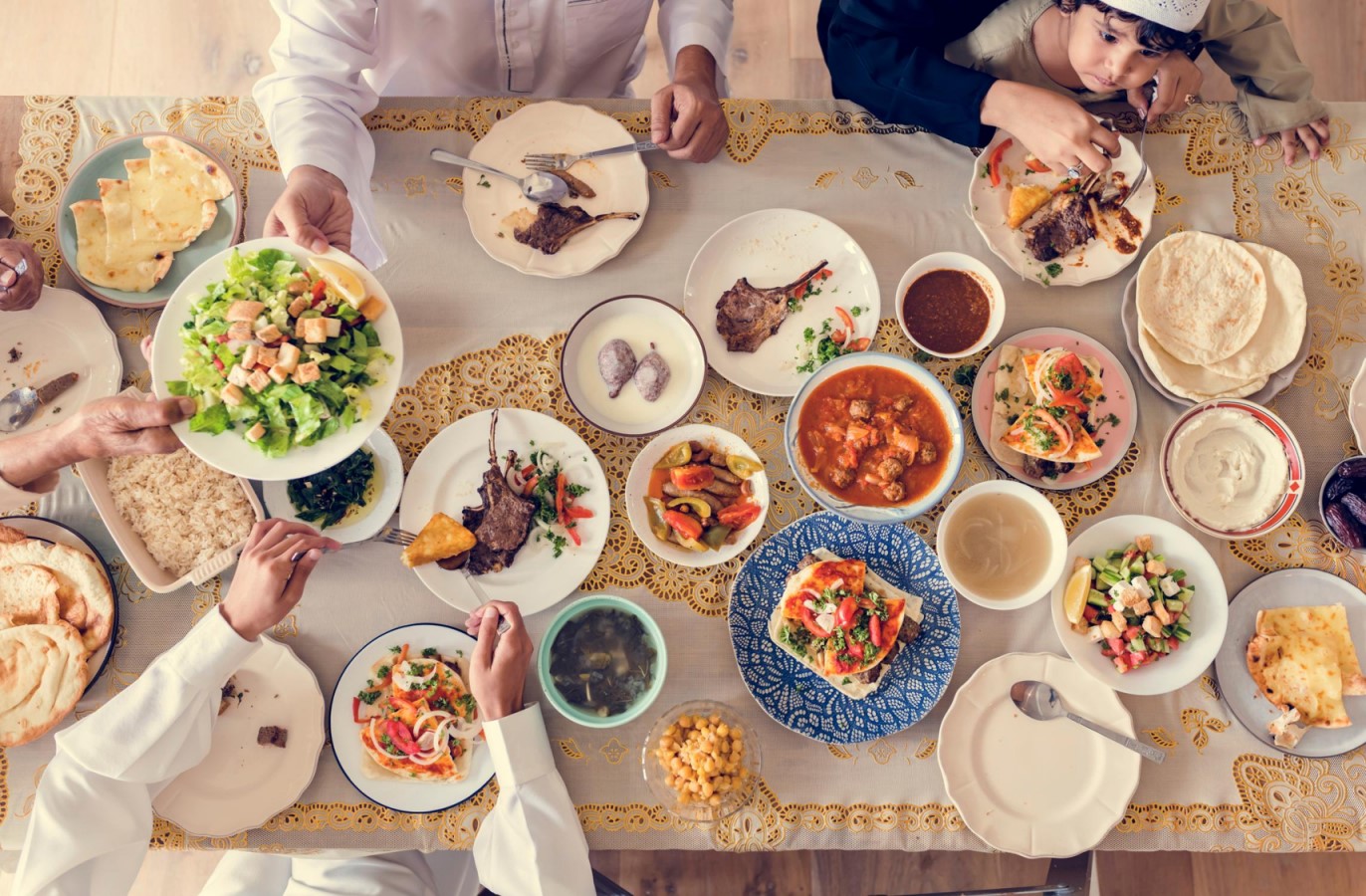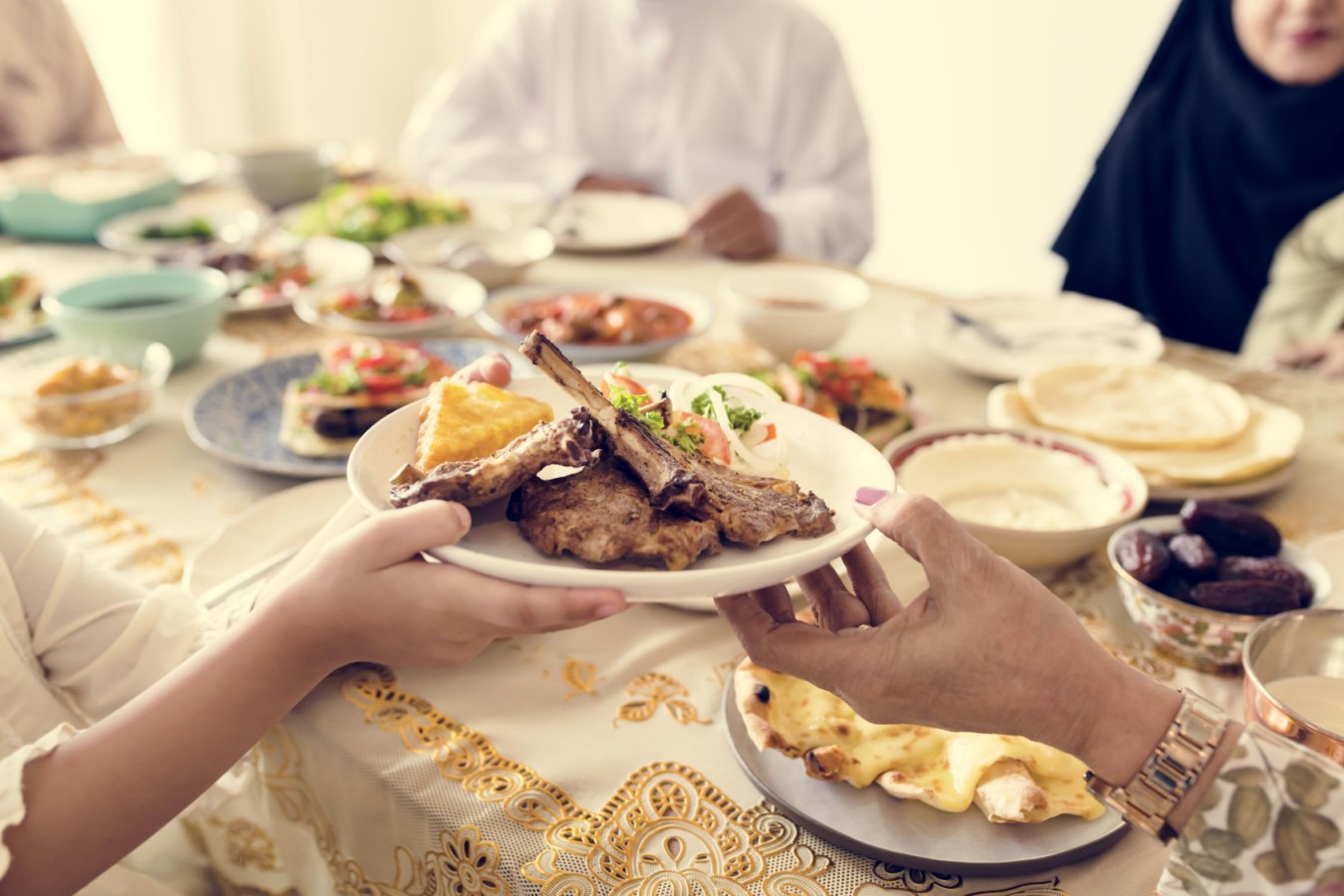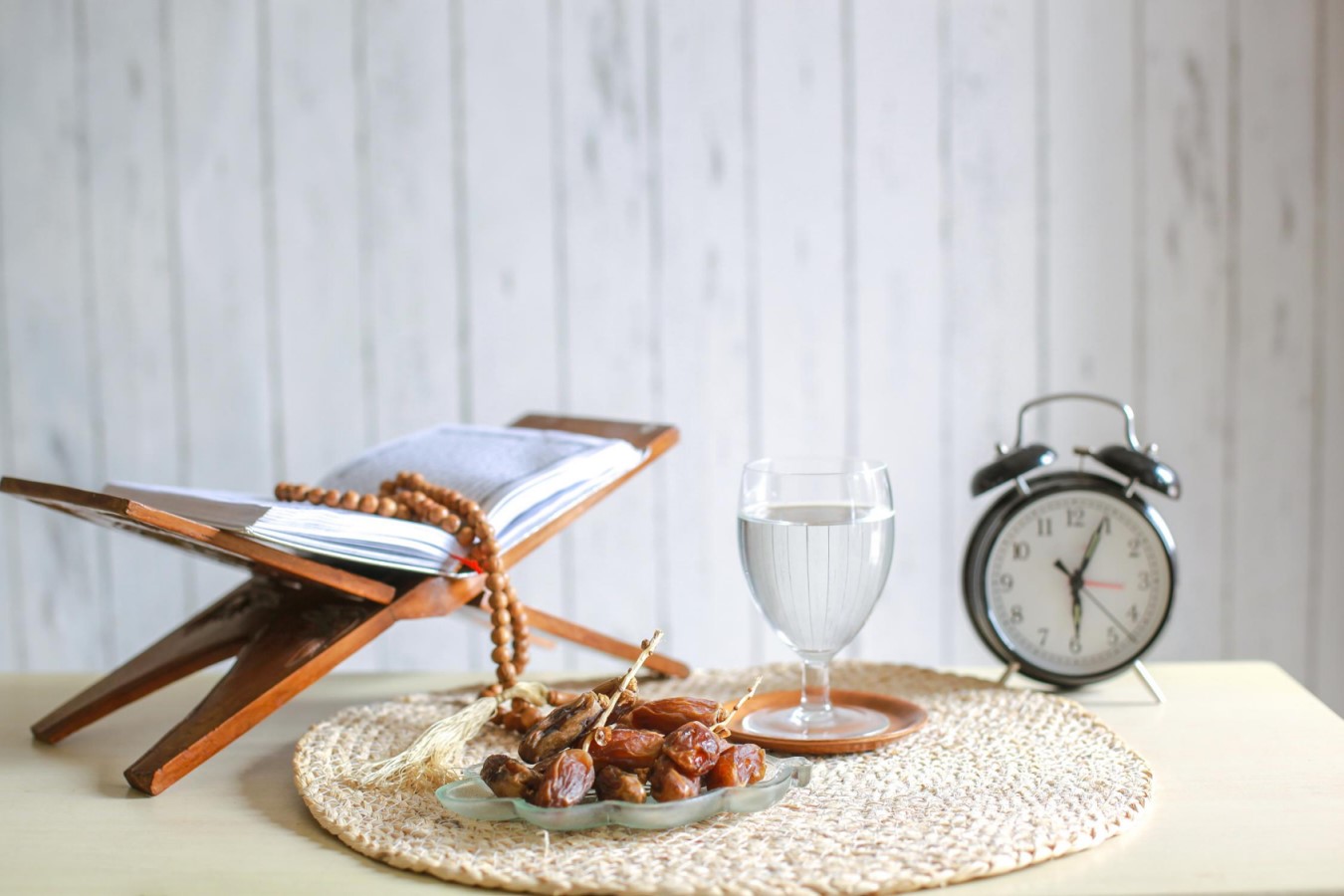by Dr Rob Corney Ph.D, MPhil, MSc, GC Biosciences
For many MCC members, Ramadan is a time of spiritual reflection, prayer, and self-discipline. As you embark on this sacred journey, it's crucial to prioritize your health and well-being. You will need to know which food groups to prioritise in the short window that you are permitted to eat.
This guide provides valuable insights into maintaining optimal nutrition during Ramadan, ensuring you stay hydrated, energized and well-nourished throughout the month.
Suhoor- Pre-dawn meal
It is key to prioritise complex carbohydrates, protein and healthy fats here.
Complex carbohydrates provide slow releasing energy which should help you feel energised throughout the day. Examples of this include wholegrains (oats, beans, corn, barley, bulgar etc) and high fibre foods like fruits and vegetables with skin. As a secondary benefit, fibrous foods will prevent constipation while your body is adjusting to fasting.
Eating protein at Suhoor will help you feel full for an extended period of time. Include protein sources such as eggs, yoghurt and legumes to help your stomach feel full. Maintaining high protein levels will also keep you from losing muscle.
It is also important to include some sort of healthy fats at Suhoor as they can also help create and sustain energy. Try to incorporate nuts, seeds and avocados into your meal.
Examples:
Lentil soups are popular in many Asian and African cultures during Ramadan due to the slow release of energy, fibre and protein content.
Porridge is also a great option during the early hours as it isn’t too heavy for those who prefer ‘breakfast foods’. To make sure you are consuming a variety of vitamins and minerals, we recommend you get creative with toppings and add berries, nuts, seeds or even peanut butter. This will increase the nutritional value of the meal.
It is also common for people to drink smoothies instead of eating at this time, especially if they are waking up from their sleep to eat. Smoothies containing milk (or dairy-free alternatives), yoghurt, oats, dates and fruits can be great for Suhoor.
Tips:
Steer clear of foods with a high salt content. If you are cooking, be conscious of how much salt you are using and try to reduce the amount. While salt is an electrolyte important in hydration, consuming too much can have adverse effects. Salt makes you thirsty and you will likely wake up with a dry mouth and be thirsty throughout the day.

Iftar- Breaking The Fast At Sunset
In Islamic tradition, it is recommended that the fast is broken with dates and water. Millions of Muslims adhere to this as they provide the body with quick energy and hydration.
It is normal for your body to crave high fat, sugary foods when you break your fast as the body is wanting quick energy, however, the best thing to do is eat a nutritionally balanced meal, and avoid fried, oily, or sugary foods.
For Iftar, its important your meal includes a mix of carbohydrates, fats and protein to replenish your stores.
Carbohydrates should also be complex sources, and protein should be lean like chicken, fish, or plant-based proteins. It can be tempting to consume more red meat than normal during Ramadan however this can be taxing on the body. Instead opting for plant-based options can be just as nutritionally rewarding.
You should consume a good variety of fruits and vegetables in your Iftar meals as they are rich in vitamins and minerals.
Tips:
Try incorporating foods with high water content such as cucumber, melons and berries. These will help you stay hydrated, and are great to snack on.
We recommend that you regularly sip water during the period from iftar to Suhoor so that your body can slowly hydrate. You will drink more over this time, than if you try to drink right before the sun rises. Adding electrolyte tablets to your liquids can also help aid hydration.
Moderation is key. Overindulgence during Iftar can lead to discomfort and digestive issues.

Part 2 of our Ramadan Nutrition Guide is coming soon. For more information about GC Biosciences and the different services they offer at their Harley Street Clinic, contact our bookings team for more information.
Dr Rob Corney Ph.D, MPhil, MSc is a highly experienced specialist in health and nutrition, using blood testing to guide nutrition plans and help people with their health and wellbeing goals.


